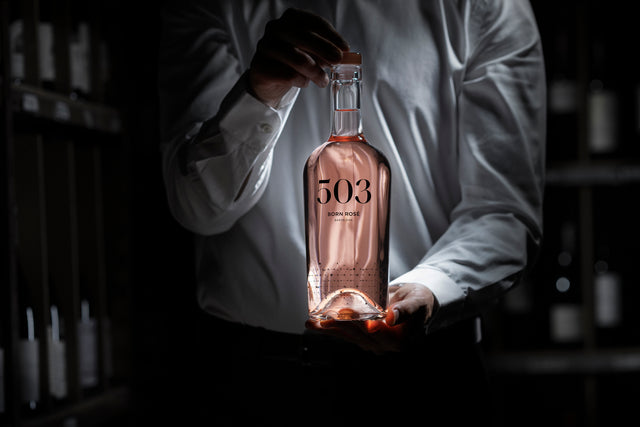Do you decant rosé wine?
As a rosé lover, you have probably gained more knowledge about your favorite pink drink than ever before, how is it made? Where does rosé color come from? And many other interesting facts about rosé. But, what about decantation? Do you decant rosé wine? Decantation is a technique used to aerate wine that has been stored for too long under oxygen-deprived conditions. This technique can make a big difference in the flavor of your wine. Let’s find out more about decantation as it applies to rosé and how to properly decant it. Keep on reading to know more!
Before we get into rosé, we need to understand a bit more about decantation. Decanting is mostly used in red wines but it is not the color that determines which wines should be decanted; instead, decantation rules are based on the age and structure of the wine. In this context, full-bodied red wines with rich flavors and intense aromas need to be decanted. Young red wines that have been designed to age benefit greatly from decantation, this is because it helps soften the tannins in the wine which gives it a bitter and astringent flavor. This is also why young wines need to be decanted longer than aged wines. Aged wine has already dissipated the tannins by a chemical reaction over time that gives it a unique aroma and essence, so decantation may take a few minutes as opposed to hours. Typical examples of red wines that need decantation include Cabernet Sauvignon, Burgundy, Shiraz, and Malbec.
Now when it comes to rosé wine, the tannin content in rose is right in the middle between a white and a red wine. Also, most rosés are not intended to be aged but rather drunk young and chilled. In this sense, rosé doesn’t need to be decanted. Not to say rosé would not benefit from decantation, in fact, rosé will likely become more aromatic and intense after decantation.
If you decide to decant rosé, do it when it is really cold and for a short period of time since decantation will likely raise its temperature. Also, decant rosé wine if it is reduced. A reduced wine means the opposite of oxidation; the wine has been deprived of oxygen for too long and when it finally breathes, it gives off a strange smell like rotten eggs, burnt rubber, or garlic. In this case, it is a good idea to decant rosé. You may also use a carafe with rosé, although a carafe's main purpose is to serve wine, it can help unlock the fruity flavors of rosé.
So, do you decant rosé wine? Now you know more about this technique, which wines need decantation, and more! As always, try our organic rosé wine, a special rosé crafted by one of the Penedés masters and made with 100% organic Grenache and Tempranillo grapes. We offer a fast delivery service anywhere in Europe for all our items.
Before we get into rosé, we need to understand a bit more about decantation. Decanting is mostly used in red wines but it is not the color that determines which wines should be decanted; instead, decantation rules are based on the age and structure of the wine. In this context, full-bodied red wines with rich flavors and intense aromas need to be decanted. Young red wines that have been designed to age benefit greatly from decantation, this is because it helps soften the tannins in the wine which gives it a bitter and astringent flavor. This is also why young wines need to be decanted longer than aged wines. Aged wine has already dissipated the tannins by a chemical reaction over time that gives it a unique aroma and essence, so decantation may take a few minutes as opposed to hours. Typical examples of red wines that need decantation include Cabernet Sauvignon, Burgundy, Shiraz, and Malbec.
Now when it comes to rosé wine, the tannin content in rose is right in the middle between a white and a red wine. Also, most rosés are not intended to be aged but rather drunk young and chilled. In this sense, rosé doesn’t need to be decanted. Not to say rosé would not benefit from decantation, in fact, rosé will likely become more aromatic and intense after decantation.
If you decide to decant rosé, do it when it is really cold and for a short period of time since decantation will likely raise its temperature. Also, decant rosé wine if it is reduced. A reduced wine means the opposite of oxidation; the wine has been deprived of oxygen for too long and when it finally breathes, it gives off a strange smell like rotten eggs, burnt rubber, or garlic. In this case, it is a good idea to decant rosé. You may also use a carafe with rosé, although a carafe's main purpose is to serve wine, it can help unlock the fruity flavors of rosé.
So, do you decant rosé wine? Now you know more about this technique, which wines need decantation, and more! As always, try our organic rosé wine, a special rosé crafted by one of the Penedés masters and made with 100% organic Grenache and Tempranillo grapes. We offer a fast delivery service anywhere in Europe for all our items.

